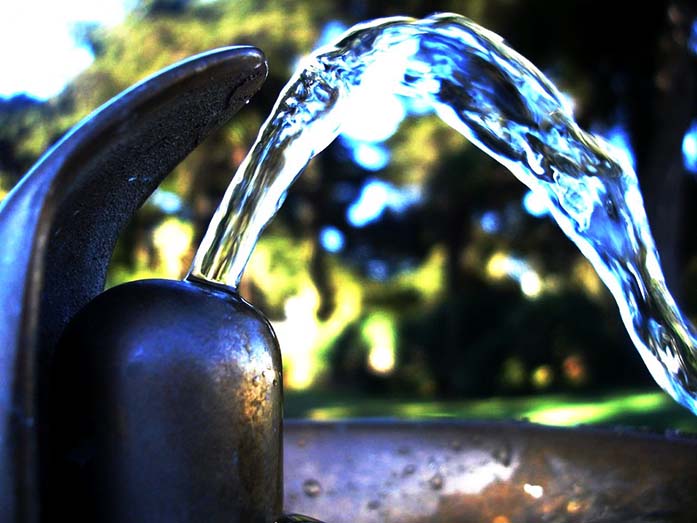By Jacob Prall
jacob-prall@uiowa.edu
Water. It’s that sweet, delicious stuff that falls from the sky and quenches your thirst. I love it, you love it, fish love it — it’s great. Seeing as it is an essential component to life, clean drinking water is often considered a bit of a necessity in society. It’s a cornerstone of civilization, even before the Romans built all those aqueducts. What is truly bizarre, then, is the absolutely pathetic state of U.S. water supply.
And there are plenty of people to blame.
Let’s start with the federal government. Remember those folks on Capitol Hill who are tasked with writing laws to protect the interests of the American people? They’re failing at the most basic levels. For example, the city of Flint, Michigan, experienced a water crisis so drastic that even Beyoncé raised money for the beleaguered community. Federal drinking water rules are so loose that the city has yet to be cited for any violation. Apparently, short of killing your residents en masse, there is no limit to which you can pollute a water supply.
Unfortunately, the water crisis in Flint is shaping up to be a familiar scenario playing out across the U.S. The Natural Resources Defense Council said on Tuesday that 18 million Americans are getting their water from systems violating federal standards in the last year. To make things even scarier, this is only the number of systems that the EPA has felt the need to record.
The EPA quickly passed the blame along to state governments, which are responsible to report on drinking water violations. According to the Huffington Post, states such as Michigan can circumvent violations by tampering with the methods of testing for lead and other toxins in the water.
The EPA audits just 6 percent of drinking water supplies because of budget constraints, and only 10 percent of violations are corrected by the end of the year in which they are discovered. If the EPA is indeed a watchdog agency, it resembles a colluding pug rather than a loyal retriever.
A researcher at Virginia Tech found that cheating the lead and copper rule has become a point of pride for some local water officials. It’s a game in which business interests are considered over all else, and the neurological damage from lead poisoning in children is regarded as inconsequential. Cozy relationships between enforcement and local regulators are all too common, and the fallout that ensues when this sort of collusion occurs, as in Flint, reminds one of the financial collapse of 2008. Federal regulators were far too close to corporate and banking interests, leading to careless and reckless behavior that punished the people of the United States.
Iowa is undergoing a number of increasingly strict standards for water treatment, and some communities are feeling the pressure in the form of higher water bills. Though this pressure is uncomfortable, it is absolutely essential for the promotion of a high quality of water and life. Two things must happen to begin undoing years of rampant under policing: an increase to the funding of the EPA and to water-treatment projects, and the reorganization of federal officials to avoid lax treatment of local water regulators. I’m personally against lead poisoning a society. It didn’t work out so well for the Romans, either.



